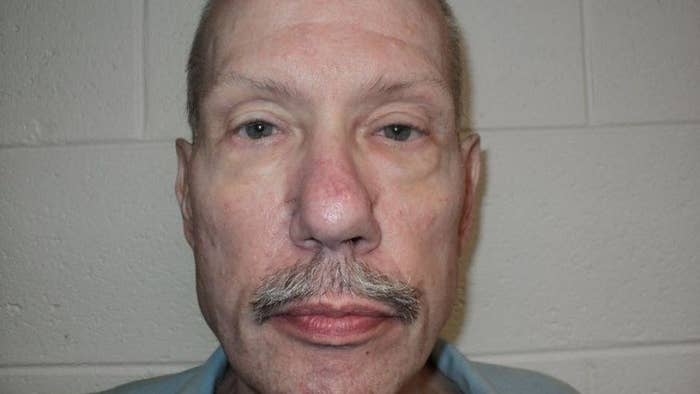
A former Navy sailor was released from federal prison Friday after serving 33 years for a 1982 rape and murder that he did not commit.
The Virginia Supreme Court on Thursday threw out his conviction of Keith Allen Harward, who filed an innocence petition earlier this year, after newly discovered DNA evidence proved his innocence in the killing of Jesse Perron and the rape of his wife in Newport News, Virgina.
In 1982, a man entered the family’s home and beat Perron to death with a crowbar, then repeatedly raped his wife.
Despite not matching the woman’s description of the suspect, Harward, who was stationed with the Navy nearby the Perron’s home, was implicated in the crime after a security guard at the base told police he saw Harward with blood on his outfit around the time of the attack.
At trial, experts for the prosecution testified that bite marks left on the rape victim matched Perron. He was sentenced to life in prison.
Harward’s case was taken up by the Innocence Project, which specializes in exoneration case work. A recent review of evidence by the Virginia Department of Forensic Science showed that DNA evidence recovered from the scene did not match Harward — instead it matched a fellow former sailor from the base, Jerry Crotty.
Crotty died in an Ohio prison in 2006 while a sentence for kidnapping and burglary.
On Thursday, following the State Supreme Court’s unanimous decision to free Harward, Virginia Attorney General General Mark R. Herring called the 60-year-old’s exoneration “wonderful news.”
“It's just heartbreaking to think that more than half of his life was spent behind bars when he didn't belong there. The Commonwealth can't give him back those years, but we can say that we got it wrong, that we're sorry, and that we're working to make it right,” Herring said in a statement.
According to the Innocence Project, Harward is “at least the twenty-fifth person to have been wrongfully convicted on discredited bite mark evidence.”
Chris Fabricant, Director of Strategic Litigation said in a statement posted on the project’s website:
“We have no idea how many other people may have been wrongly convicted based on this evidence, but any conviction resting on this grossly unreliable technique is inherently flawed. Every state in the nation should be conducting reviews to see if there are others like Mr. Harward sitting in prison for crimes they didn’t commit. Moreover, that this technique is still used in our justice system, including current capital prosecutions, presents a public safety threat.”
